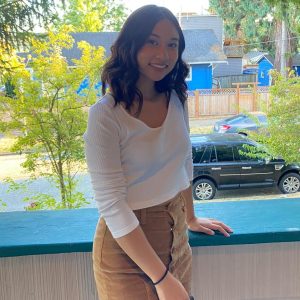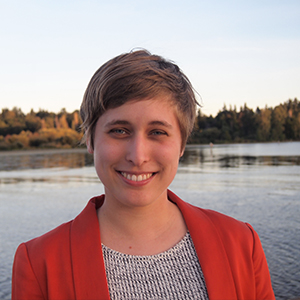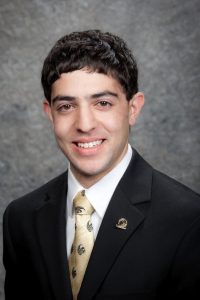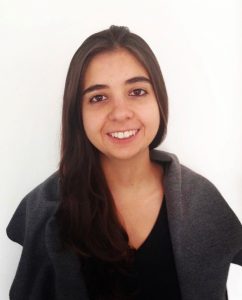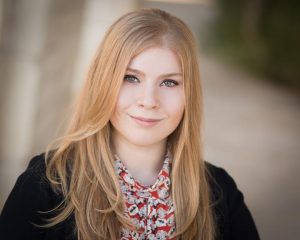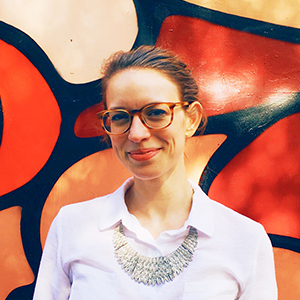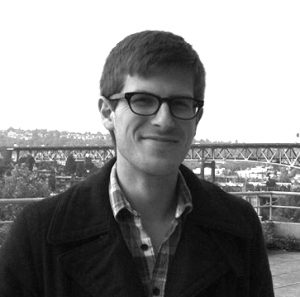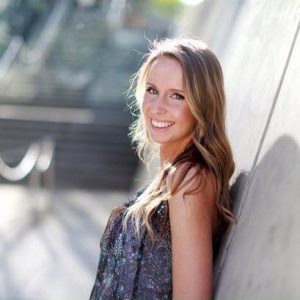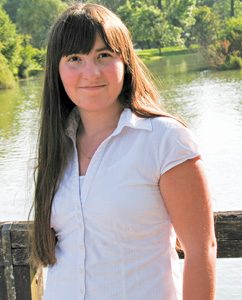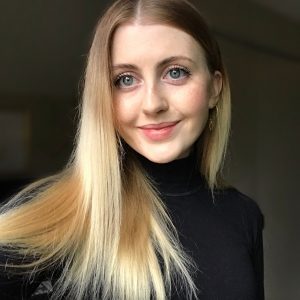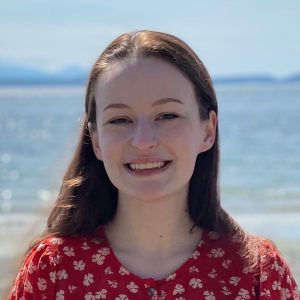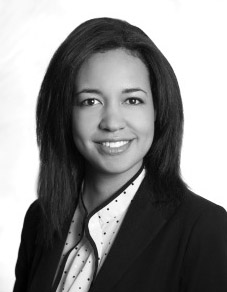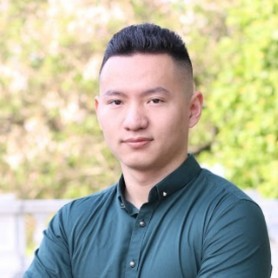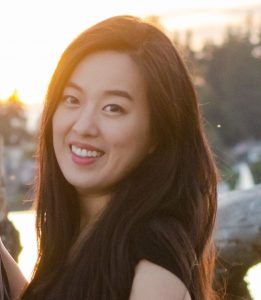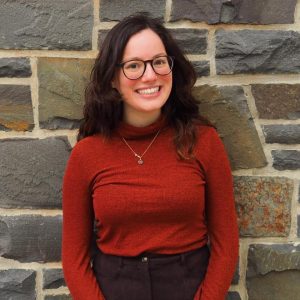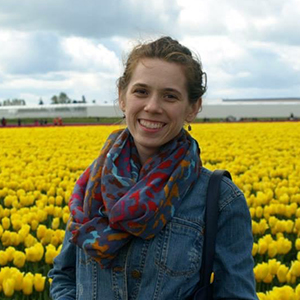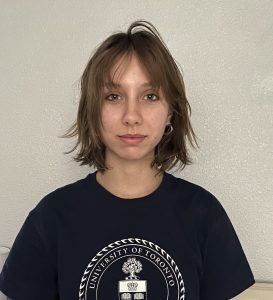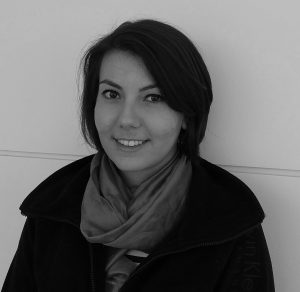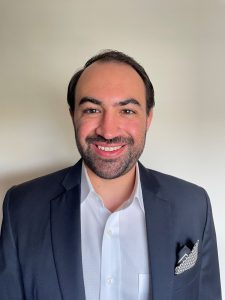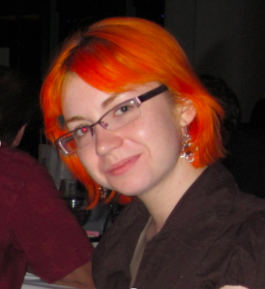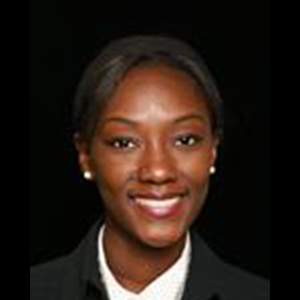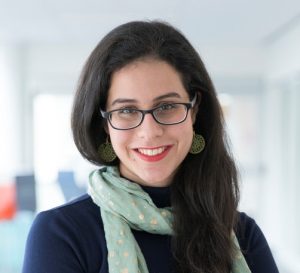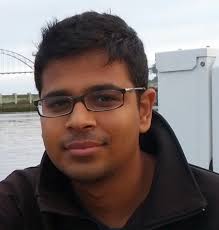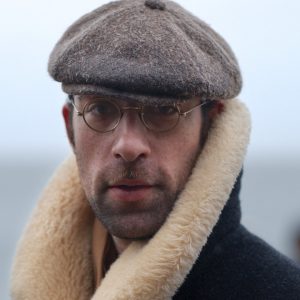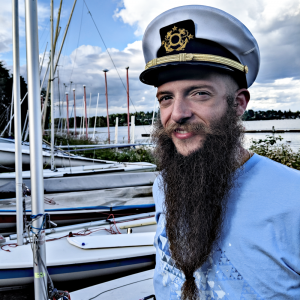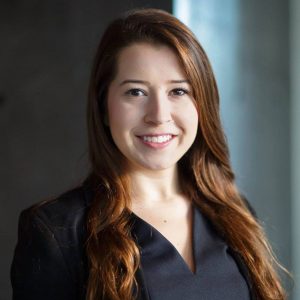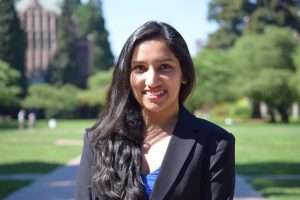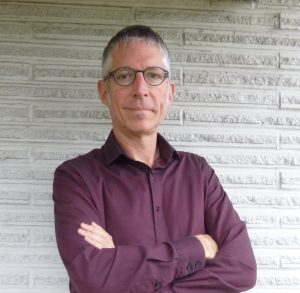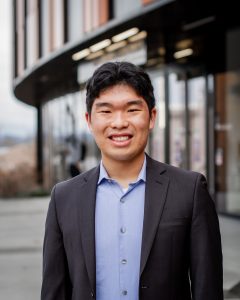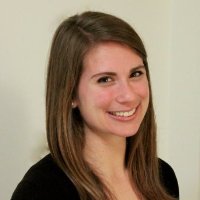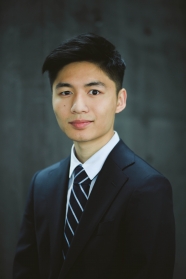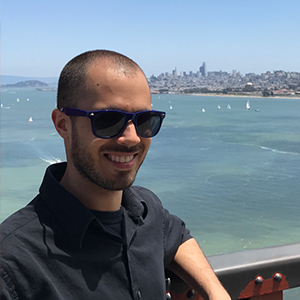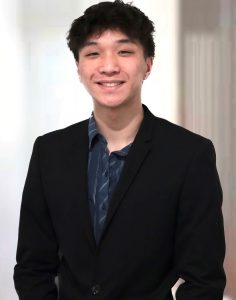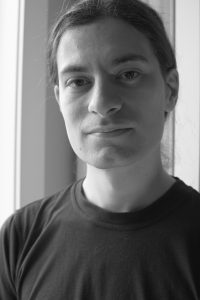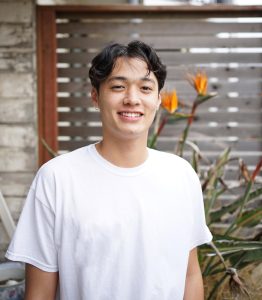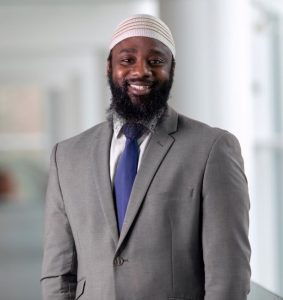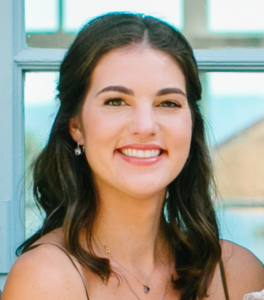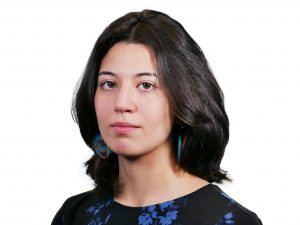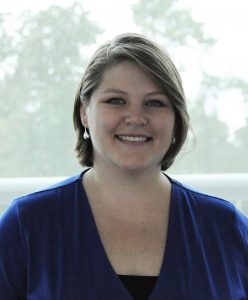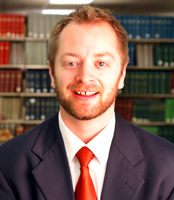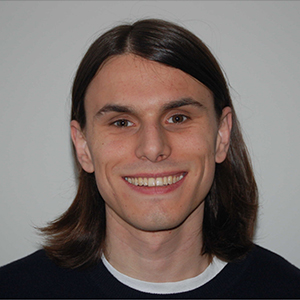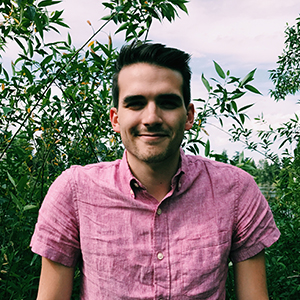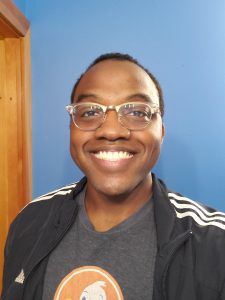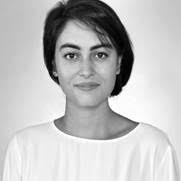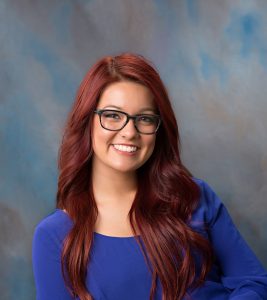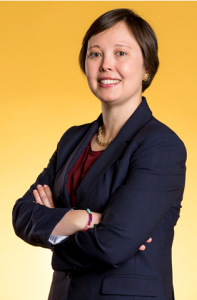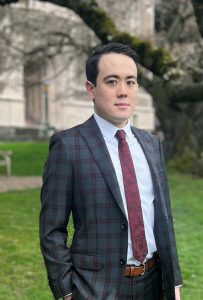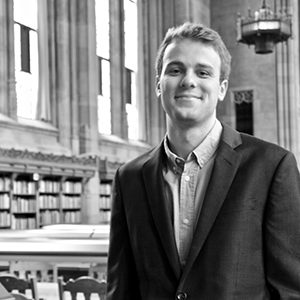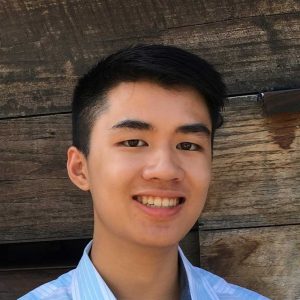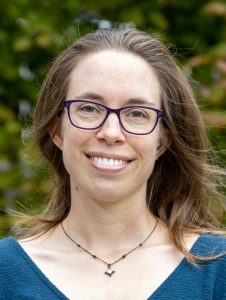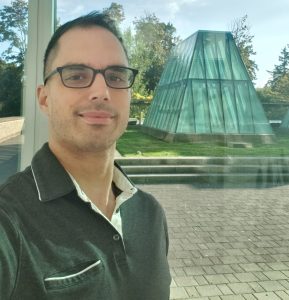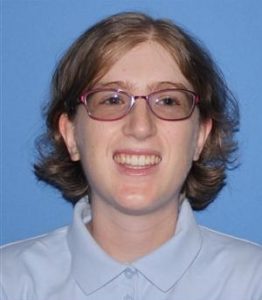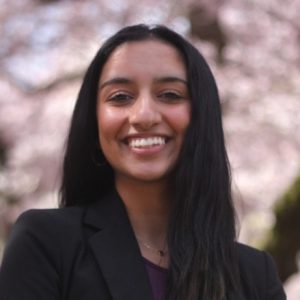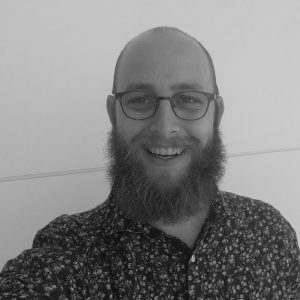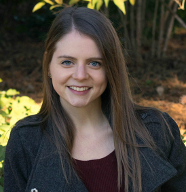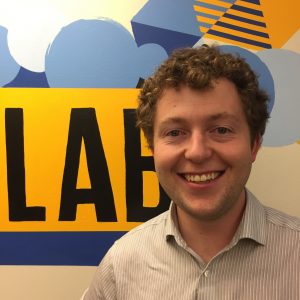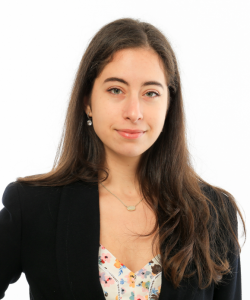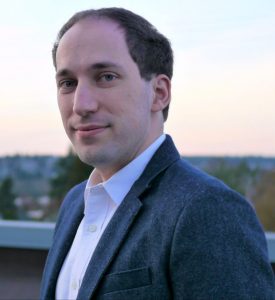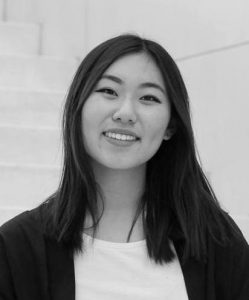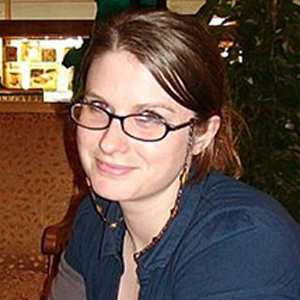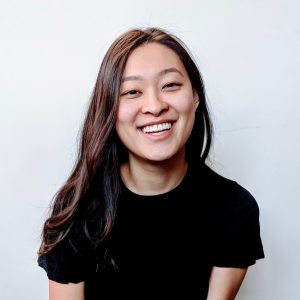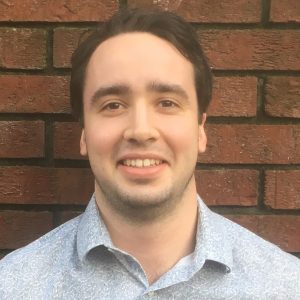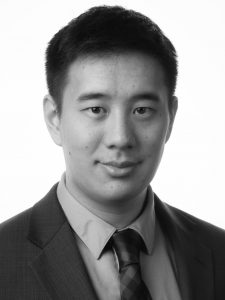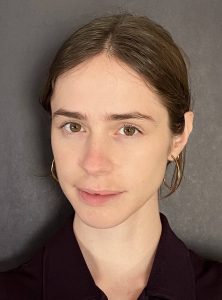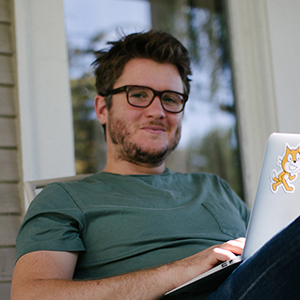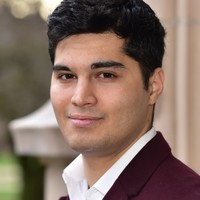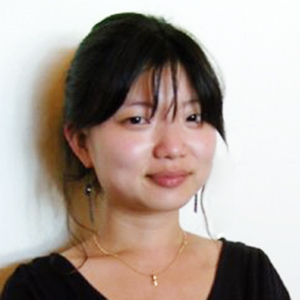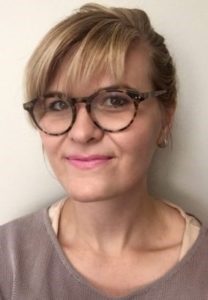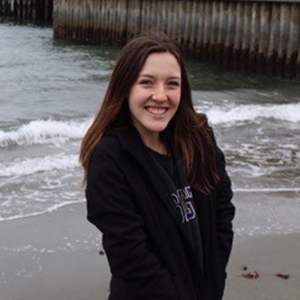Aaron Alva received his J.D. and M.S. in Information Management from the University of Washington. Aaron's interests are at the intersection of law, cybersecurity and privacy. He is a NSF CyberCorps scholarship recipient, and currently a Technology Policy Research Fellow at the Federal Trade Commission.
María P. Angel is a Ph.D. student in Law. She is interested in the intellectual history of privacy law scholarship, and believes that algorithms are pushing twenty-first century American law scholars to inadvertently propose the contours of a post-algorithmic privacy. She also works at the intersection of tech policy and Science, Technology, and Social Studies (STSS).
Jennifer Aronson is a J.D. graduate of the University of Washington School of Law. Prior to law school, Jennifer worked at a research institute at the University of Texas Austin studying issues affecting military families, such as telehealth services in underserved rural areas and technology-assisted cognitive training. She is interested in free speech and fourth amendment issues within privacy law, ethics in technology, and data science for social good.
Stephanie was a Ph.D. student at the UW Information School. Her research is in the area of emerging technologies and technology policy. In particular, Stephanie is interested in the design of data intensive tools and corresponding regulation.
Shaila received her Bachelor of Arts in Law, Societies and Justice from the University of Washington while also studying Entrepreneurship. She is interested in the intersection of law and new technologies such as AI and machine learning, particularly pertaining to issues of fairness and accountability. She is also interested in start-ups and the interaction between innovation and policy and law.
Tamara Bonaci received her Ph.D. in Electrical Engineering from the University of Washington while a member of the BioRobotics Lab. The topic of her research was “Privacy and Security by Design in BCIs” and its goal is identification of privacy threats arising from the BCI usage, and the development of prevention methods. She is also interested in the security of telerobotic systems.
Noemi Chanda has a JD from the University of Toronto, Faculty of Law, and an MA in Economic Policy from McMaster University. Her interests lie at the intersections of law, health, economics and technology. She is particularly interested in the privacy implications of the Internet of Things in the health care context.
Kaiming Cheng is a Ph.D. student in the Allen School of Computer Science & Engineering and a member of the Security and Privacy Lab. He studies the security and privacy of Augmented/Virtual Reality. More specifically, he is interested in how will the future AR/VR system look like, what are the inheriting security and privacy flaws, and how can we protect end-user privacy.
Inyoung Cheong is a Ph.D. Candidate at the UW School of Law and a member of the Security and Privacy Lab at the UW Computer Science & Engineering and the Tech Policy Lab. Her research focuses on private and public regulation of free speech and privacy in the context of social media industries and algorithmic decision-making. Recently, Inyoung has explored collaborative governance models that motivate stakeholders to work toward online trust and safety.
Camille received her PhD from the Allen School of Computer Science & Engineering. She is interested in understanding users' security and privacy expectations when using popular applications (e.g., social media). She focuses on how those expectations may be intentionally or accidentally violated by other users without special skills or access to the application.
Amelia is currently double majoring in Public Policy and Peace, Conflict, and Justice at the University of Toronto. Her interests include the intersection of technology, the legal system, and the carceral state, as well the regulation of privacy, surveillance, and democratic rights. She is currently working on two projects looking at the interference of tech consulting firms in democracy and models for renewable energy transitions
Siana Danch received her J.D. and an LL.M. in Taxation at the University of Washington School of Law. She is interested in tax policy research on the consequences of automation and robotization in the transportation sectors.
Max attended Stanford University where he received a BS and MS in Management Science and Engineering with a focus in Operations Research. After graduating, heworked at a couple of startups in Los Angeles before returning to the Bay Area to do business development at Facebook in 2014. In 2016, he transferred to the regional product management team in Facebook’s Singapore office where he remained until starting law school in 2021. Max currently attends the University of Washington School of Law and is interested in everything at the intersection of technology and law. In his free time, Max enjoys golfing, snowboarding, hiking, and playing board games.
Tamara Denning is an Assistant Professor at the School of Computing at the University of Utah. Her interests are in the human aspects of computer security and privacy, ranging from understanding how people use and reason about current technologies to designing security and privacy that better matches the human and logistical needs of people around the technology—user and non-user alike recording capabilities.
Jabu Diagana is a J.D. graduate of the UW School of Law interested in Privacy, Cyber security and data protection. Prior to law school, Jabu worked at the Boeing Company Engineering Operations & Technology organization. At Boeing, Jabu had the opportunity to perform technology audit both inside the company and at suppliers sites all over the world to ensure that the company had the right security controls in place and that its data and network were safeguarded. Jabu has a BS in Management Information Systems and a Master's in Business Administration.
Pardis was a postdoctoral scholar at University of Washington, who worked with Tadayoshi Kohno and Franziska Roesner. She received a B.Sc. degree in computer engineering from Sharif University of Technology, and M.Sc. and Ph.D. degrees in computer science from Carnegie Mellon University (CMU). As part of her doctoral research, she developed a usable privacy and security label for smart devices to inform consumers’ Internet of Things-related purchase decisions. She was selected as a Rising Star in electrical engineering and computer science in October 2019, and awarded the CMU CyLab presidential fellowship for the 2019-2020 academic year.
Ivan Evtimov earned a PhD in the Allen School of Computer Science & Engineering. As a member of the Security and Privacy Lab, he studied the security of machine learning algorithms. In particular, Ivan is interested in how deep neural networks applied in the real world might fail if their inputs are modified in unexpected or malicious ways and in the policy implications of such threats.
Earlence was a postdoctoral research associate at the University of Washington Allen School of Computer Science & Engineering, and is currently an Assistant Professor at the University of Wisconsin-Madison. His work focuses on interdisciplinary problems in security and privacy. His work includes security for cyber-physical systems, and adversarial machine learning.
Elias is a PhD student at the UW Information School. Elias' research explores rites of passage and liminality within the contexts of technology and design. In particular, Elias is interested in the intersection of liminal spaces and things, and the human interactions that are found there. Elias has a background in art and design, writing, and library science.
Sereen graduated from the University of Washington, Seattle in June 2020, with a Bachelor of Science degree in Psychology. She worked as an intern with the Tech Policy Lab and helped support Research on Technology Policy resources, emerging technology related to AI/ML and current technology issues related to compliance and disinformation and also helped support Lab workshops/events. She is currently in an IT Co-op at Genie- A Terex Brand and is working with the digital customer experience team. She plans to enroll at the University of Michigan, Ann Arbor for her Masters of Science in Information.
Madeline Lamo is a J.D. graduate of the University of Washington School of Law. She is interested in free speech and privacy law issues in technology, especially with regards to the challenges of reconciling national laws with the global Internet.
Timothy graduated from Information School where he focused on Human-Computer Interaction.
Kiron Lebeck received his Ph.D. from the Allen School of Computer Science & Engineering. He is broadly interested in emerging consumer technologies such as virtual and augmented reality, with an eye towards the security and privacy challenges they present.
Sean is an undergraduate student assisting with UX and graphic design at the Tech Policy Lab. He is interested in exploring the nuanced integration of AI features into product design, particularly in response to the rapid advancement of AI technology and its potential to reshape user experience and accessibility. He is a current Associate UX Designer at Lucid Software.
Nick Logler is a postdoc with the Tech Policy Lab and recently earned his PhD from the University of Washington Information School. He was an active member of the Tech Policy Lab as student as well. He also worked in the value sensitive design lab exploring the spaces between our ability to build technical systems and our ability to think ethically about them. His own research investigates how people are affected by experiences of designing, building, and using different creative technologies.
Lassana Magassa was a Postdoctoral Scholar and earned a Ph.D. from the UW Information School. His research explores how different modes of social control impact people’s perceptions and uses of technology. He is also interested in understanding the effect of digital inequalities on segments of the general population.
Patrick Moore completed his J.D. at the UW School of Law. His interests are in intellectual property and digital rights. Patrick completed an internship at the Electronic Frontier Foundation.
Bryce Newell, J.D., Ph.D., is an Assistant Professor of Media Law & Policy at the University of Oregon. He received his Ph.D. from the University of Washington Information School and is a former Google Policy Fellow. He conducts socio-legal research at the intersections of law, surveillance, migration, and policing in society, with a particular focus on police use of surveillance technologies, privacy, and access to information.
Peter Ney earned his Ph.D. from the Allen School of Computer Science & Engineering. As a postdoctoral researcher, he is a member of the Security and Privacy Lab, where he works to measure surveillance and build secure systems that enhance user privacy. He is also interested in studying the privacy impacts of machine learning and biosecurity.
David O'Hair is a J.D. graduate of the University of Washington School of Law. He is interested in autonomous technologies, cybersecurity, and artificial intelligence. David wants to help pave the way for integrating autonomous technologies into society and make sure cybersecurity and artificial intelligence are properly regulated.
Kentrell Owens is a PhD student in the Allen School of Computer Science & Engineering and a member of the Security and Privacy Research Lab. He is specifically interested in the computer security and privacy needs of underserved communities. He has recently published work on web authentication, the surveillance of the communication of incarcerated people and their families, and the risks of using smartphone applications for electronic monitoring (e.g., as a condition of probation/parole).
Audrey was a Summer Robotics Fellow at TPL and is an undergraduate student at Vanderbilt University, studying Women’s and Gender Studies, Anthropology, and Political Theory. In particular, she is interested in humanoid robotics and the interplay between identity and technology in a modern world. Following her graduation, she hopes to attend law school and eventually pursue a career in academia.
Katherine Pratt received her Ph.D. in Electrical Engineering from the University of Washington. She is interested in neural security and eliciting personal information as it relates to non-invasive brain-computer interfaces.
Andrew was a Hazelton Fellow at the Tech Policy Lab and earned an M.J. from the University of Washington School of Law. Andrew has a background in cognitive science and specializes in AI law and regulation. While broadly interested in all matters of tech policy, Andrew is most interested in exploring civil remedies for autonomous vehicle-related injuries and defamation arising from deepfake technologies.
Espen Scheuer was a Research Assistant at the Tech Policy Lab as a UW undergraduate studying Human Centered Design & Engineering with a concentration in data science. He is interested in the intersection of technology and sustainability as well as public perception of privacy and security.
Andrew was an intern with the Tech Policy Lab and is an undergraduate student at the University of Washington studying computer science and philosophy. He is broadly interested in the ethics and regulation of emerging technology affecting minority communities, including data privacy, surveillance, and artificial intelligence. In particular, he enjoys exploring the ways in which non-Western philosophies can inform a more just and humane technological future.
Charles worked in the Tech Policy Lab and was also a previous Hazelton Fellow who worked on 2020 election misinformation at the Center for an Informed Public. Before law school, he was a flight officer in the US Navy who worked in information security and with military encrypted communications. He also served as an editor on the Washington Journal of Law, Tech, and Arts (WJLTA) and was a team captain for the 2022 Tang Moot Court National competition team for UW Law. He is interested in practicing in the fields of antitrust, civil rights, election law, and privacy law.
Manisha graduated from the Foster School of Business studying Finance and minoring in Law, Societies and Justice. She is interested in social impact and public sector consulting which allows her to learn about the intersection of higher education, economic development, and technical business background to give back to underprivileged groups. She researched the Lab's background regarding cultural changes in artificial intelligence and assisted with branding strategies. Manisha will be joining Boston Consulting Group as an Associate.
Anna Lee Swan was a Postdoctoral Scholar for the Tech Policy Lab and the Center for an Informed Public. She earned her Ph.D. in Communication from the University of Washington, with an emphasis on gendered labor and global social media use. Previously, she worked on a variety of research and evaluation projects aiming to advance equity in STEM.
Leron came to law school after working in nanomaterials research and was eager to apply his technical background to policy questions that arise out of advances in DNA technology. The Hazelton fellowship allowed him to study American laws governing technology, privacy, and the interaction between nanoscience and computer science.
Rian is a PhD Candidate in the Communication Department studying Science, Technology, and Society. She is researching the ramifications of the rise of AI/ML in the agricultural sector. She focuses on policy, regulatory, and design efforts to ensure that programmatic platforms are implemented in ethical, sustainable, and transparent ways.
Miranda Wei is a PhD student in the Allen School of Computer Science & Engineering and a member of the Security and Privacy Lab. She studies user-centered security and privacy, particularly systematic factors such as gender and collectivity. Miranda is broadly interested in supporting users' agency and control over their own data.
Charlie White graduated from the University of Washington with a B.A. in English. A background in literature helped him write blog posts and previews for the lab on current research and upcoming events. His ambitions are to contribute to more ethical and effective data collection and transferring standards in the tech industry.
Jesse Woo is a University of Washington Law alumnus and lawyer in the San Francisco Bay Area. His practice serves technology clients and small businesses for their IP, privacy compliance, and business transaction needs. As a consultant with the Tech Policy Lab he contributes his significant research and writing skills to the Lab’s cutting-edge policy work.
Zoe earned a J.D. from the UW School of Law. She has a background in computer science and is interested in the social implications of human-robot interaction and how law enforcement uses technology.
Samuel Woolley received his Ph.D. in Communication from the University of Washington while he was a Research Fellow at the Tech Policy Lab. His research is focused on the subjects of automation, technology, and politics. He was a project manager of CompProp at the Oxford Internet Institute and politicalbots.org at UW. He is currently an Assistant Professor at the University of Texas at Austin.
Daisy Yoo received her Ph.D. from the Information School at the University of Washington. Her work spans the fields of interaction design, HCI, service design and information science. In particular, Daisy is interested in designing computing applications to support open public discourses on political topics.
Hayley Younghusband received her Bachelor's degree in Informatics from the University of Washington and was a Research Assistant at the Tech Policy Lab.
